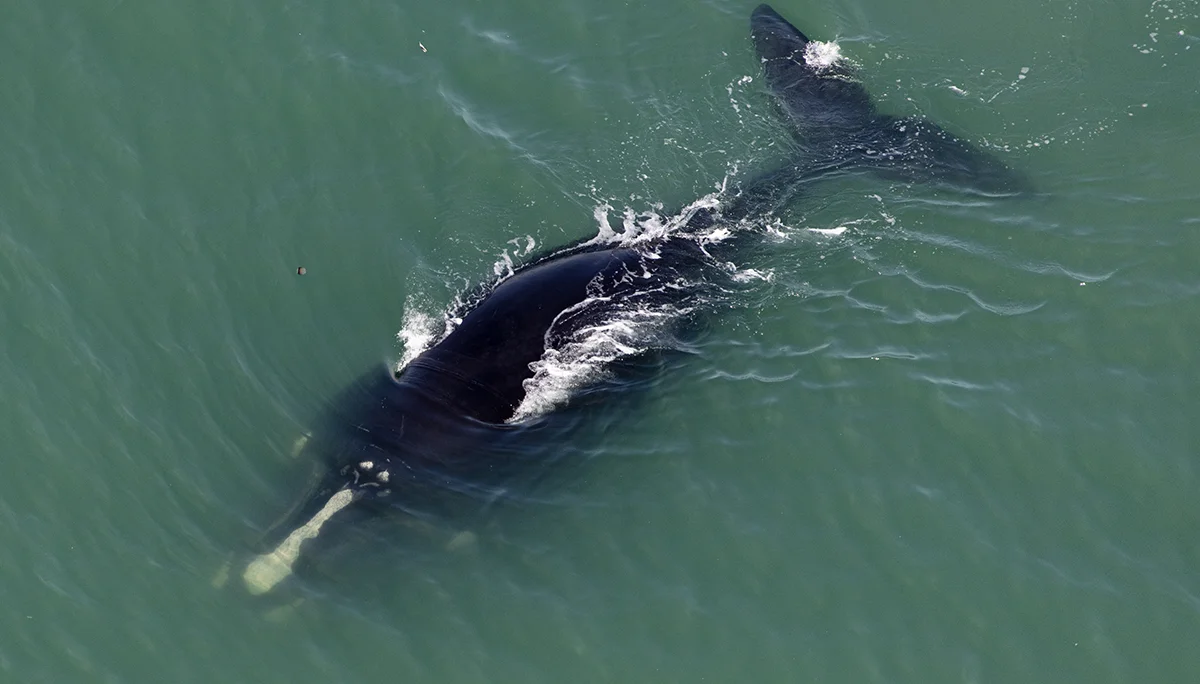CEC Secretariat recommends a factual record on the North Atlantic right whale under USMCA/CUSMA Chapter 24
Montreal, 13 June 2022— On 3 June 2022, the Secretariat of the Commission for Environmental Cooperation (CEC) recommended developing a factual record to explore enforcement activities to protect the North Atlantic right whale (NARW), one of the most endangered large whale species, along the east coast of the United States.
The recommendation responds to a Submission on Enforcement Matters, SEM-21-003 (North Atlantic right whale), under Chapter 24 of the US-Mexico-Canada Agreement (USMCA/CUSMA) filed by Oceana.
Oceana asserts that the United States is failing “to effectively enforce its environmental laws with respect to collisions between NARWs and ships, typically called ‘vessel strikes.’” It also alleges that the United States is failing “to effectively enforce its environmental laws with respect to the entanglement of NARWs in commercial fishing gear.”
The North Atlantic right whale (Eubalaena glacialis) has been listed as endangered since 1970 and is protected under both the Endangered Species Act and Marine Mammal Protection Act. The United States has acknowledged that fishing gear entanglement and vessel strikes have been and continue to be the principal human-caused sources of NARW mortality and serious injury. Between 1990 and 2010, the population was showing signs of recovery, but in 2017, the National Marine Fisheries Service (NMFS) declared an Unusual Mortality Event for the species that continues to present. According to NMFS, between 2000 and 2017, approximately 20% of the NARW population was killed or seriously injured. From 2017 to present, more than 10% of the remaining population has been killed or seriously injured, also according to NMFS.
In response to the submission, the United States informed the Secretariat that many of the issues raised in the submission are part of ongoing litigation in various federal district courts. The United States also responded that authorities have “prosecuted over 70 civil administrative enforcement cases involving violations of the vessel speed rule” since 2010, and “collected over $2 million in penalties for violations of the vessel speed rules.” Regarding fishing gear entanglement, the United States described its inspection and compliance assistance activities, and stated that it has issued summary settlements in 16 cases involving violations of regulations to reduce injuries and deaths of large whales due to fishing gear entanglement since 2019.
The CEC Secretariat finds that some of the matters raised in the submission are subject to pending judicial proceedings, while others warrant preparation of a factual record. The CEC Secretariat concluded that a factual record could provide information on United States’ efforts to effectively enforce the Vessel Speed Rule by bringing civil and criminal enforcement actions for violations of the rule and could also consider the potential for emergency regulations to protect the NARW.
The CEC Secretariat finds that a factual record could provide information on the United States’ efforts to effectively enforce fishing gear regulations by bringing civil enforcement actions to reduce incidental mortality and serious injury of NARWs from commercial fishing. A factual record could also explore reasonable alternatives that could have been considered during the environmental impact analysis for the rule to reduce entanglement risks as well as additional cumulative and indirect effects of human activities on NARWs.
The CEC Council should vote on whether to authorize the Secretariat to prepare the factual record, normally within 60 working days of receiving the recommendation.
For more information, please visit the CEC’s Registry of Submissions: https://www.cec.org/submissions-on-enforcement/registry-of-submissions/north-atlantic-right-whale/

The North Atlantic right whale population continues to decline as collisions with ships and entanglement in fishing gear threaten the species.
The CEC SEM Process
The CEC Submissions on Enforcement Matters process supports public participation, information-sharing between governments and the public, and transparency and openness in the effective enforcement of environmental law in North America. If you have reason to believe that an environmental law is not being effectively enforced by Canada, Mexico or the United States, the SEM process may address your concerns.
As of 1 July 2020, the CEC’s SEM process is governed by USMCA Articles 24.27 and 24.28 of the Environment Chapter of the free trade agreement between Canada, Mexico and the United States (CUSMA, T-MEC, USMCA).
Want to learn more about the SEM process? Please watch this two-minute video for an introduction: